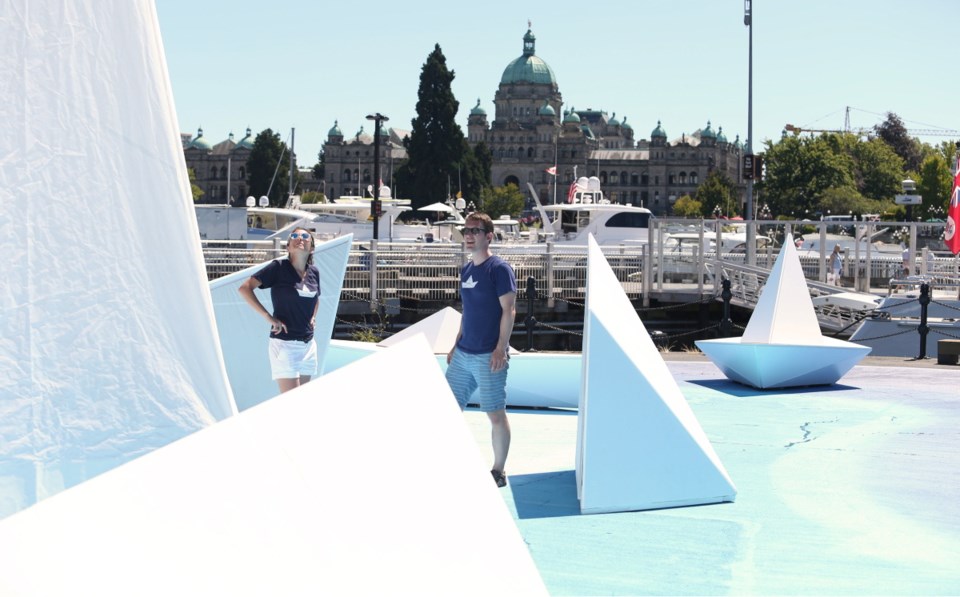Victoria’s tourism industry is showing the kind of strength that insiders say is reminiscent of the busy years in the 1990s before the onset of terrorism threats, disease worries and the need for passports to cross the border.
“It does feel a bit like the late 1990s, that’s the last time I saw this kind of demand,” said Reid James, general manager of the Hotel Grand Pacific. World events such as 9-11, mad cow disease and SARS wreaked havoc on Victoria’s tourism industry in the early 2000s, he said.
Through the first six months of the year, the numbers have been impressive, with hotel occupancy hitting 72 per cent, a five per cent increase over the same period in 2015. Revenue per available room hit $103.41 in that period, versus $88.34 last year.
B.C. Ferries and Victoria International Airport reported significant increases in passengers for the first six months.
Vehicle traffic on ferries was up 5.3 per cent and the passenger count was up 4.4 per cent. The airport recorded a 5.4 per cent increase in passengers. Black Ball also reported stronger passenger numbers for the Coho ferry.
“The numbers are amazing, unbelievable actually,” said Frank Bourree, principal of Chemistry Consulting, which collects data on the hospitality industry.
“These are nosebleed numbers, record numbers.”
Dave Cowen, general manager of Butchart Gardens, said Butchart surpassed pre-recession 2008 numbers last year — and is building on the momentum.
“In the 1990s, we had some very good tourism years and we are getting back to that level, but we are not quite there yet,” he said.
The strong start to the year is down to a suite of factors ranging from a weak Canadian dollar, which has brought more American travellers to Canada and kept Canadians closer to home, to concern about travelling globally due to the increase in terrorism threats, industry officials say.
“We have seen some swings in the U.S. dollar before but this is biting deep right now,” said Bourree, noting it’s even having an effect during the lead-up to a U.S. election — traditionally a time when visits from the U.S. drop. “We’re not seeing that [slowdown] this year.”
Bourree said the industry is seeing the longer-term effect of a strong cruise ship business, with visitors who have previously stopped in the city during a cruise now returning to Victoria on their own. “We’re seeing more American visitors from the Deep South and much further afield” than the traditional markets of Washington, Oregon and California, he said.
Ryan Malane, Black Ball co-owner, said the Pacific Northwest’s economic health has played a big role. “In our package bookings, we are seeing more multi-city itineraries that include Seattle, Portland and Victoria,” he said.
Paul Nursey, chief executive of Tourism Victoria, agreed that Victoria is reaping the benefit of being part of the Pacific Northwest — a hot tourism commodity.
“Canadians are staying home because of the dollar, there is a strong regional economy and there are some troubled places in the world right now and we are benefiting from it,” he said. “And we are in a vibrant city that is getting more interesting, so we are getting more than our fair share of travellers.”
Tourism Victoria is working to book more conferences and group travel so when a downturn comes, there will be a soft landing, Nursey said. “Our future is in building some resiliency.”



